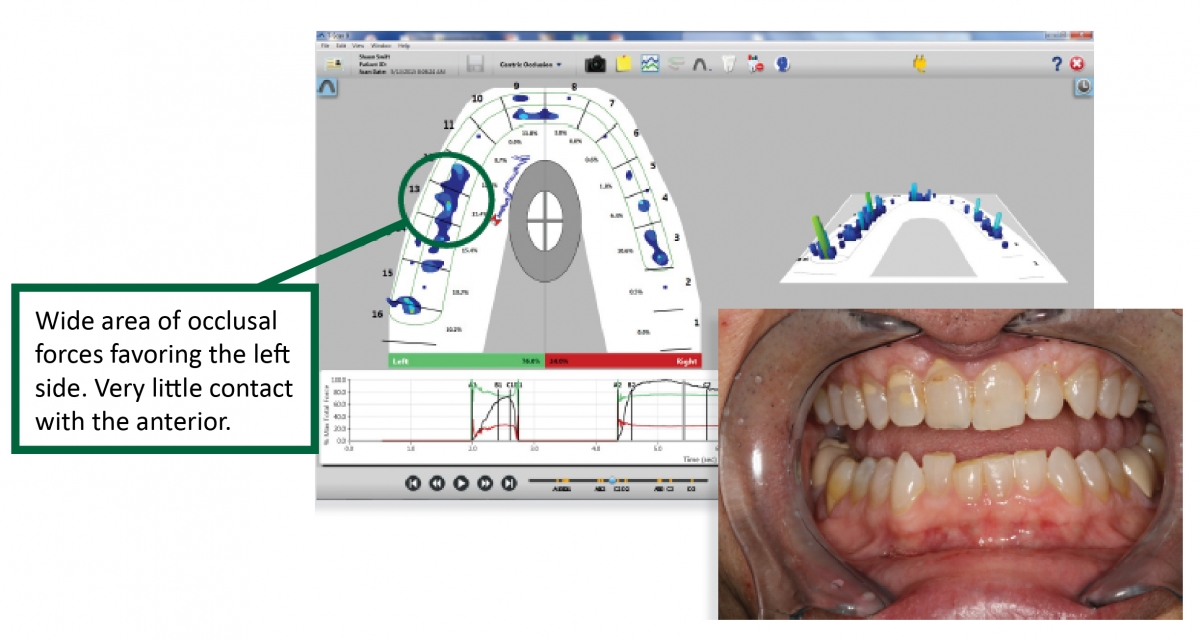Improve Clinical Outcomes with T-Scan Technology
Regardless of the term or method you currently use to determine when an occlusal adjustment is needed, T-Scan™ will enhance your existing evaluations by providing more accurate occlusal data for more precise diagnoses and adjustments.
Dentists are using T-Scan at every stage of the treatment plan, from initial consultation to the case finishing and recare - regardless of treatment philosophy. It is the only tool that provides detailed information about the bite. By providing data related to occlusal force, location, and timing, T-Scan helps dentists identify occlusal interferences that could be potentially destructive to their dentistry.
Here is one example from a dentist who has incorporated T-Scan into his practice:
I use T-Scan on implant or full mouth reconstruction patients who experience post-treatment issues. The real value of T-Scan is that it allows me to detect occlusal interferences I couldn’t see before when I was just using articulating paper. This is so important because if patients invest in their treatment, they expect successful, long-lasting results. Without the T-Scan, a dentist may not know why patients are having issues with implants or other restorations. I can solve these problems, and that’s the biggest reward.
Dr. Jose Suarez Feito

Without T-Scan, the amount of force between these teeth would be unknown. This type of data is changing the way dentists identify and treat occlusal issues. Patients are getting better, longer-lasting results, and dental practices are reaping the rewards of new profit sources, more efficient treatments, and less wasted time and materials.
To learn more about how T-Scan can help you improve your treatment outcomes, download our free eBook: Where T-Scan Fits into Your Everyday Dentistry.
